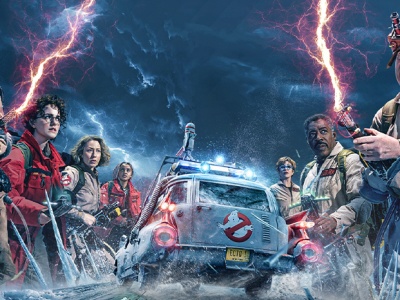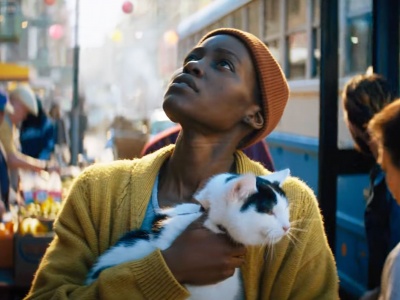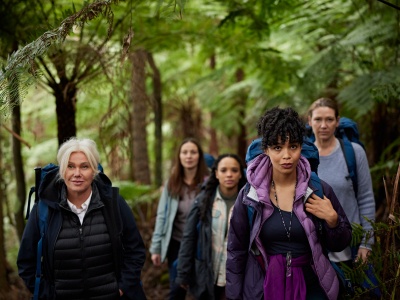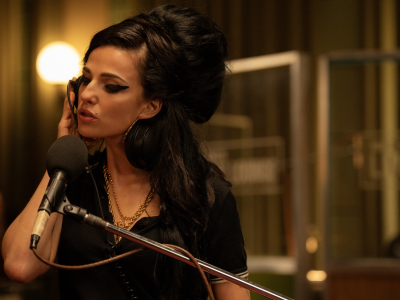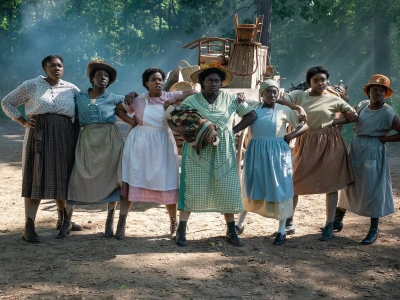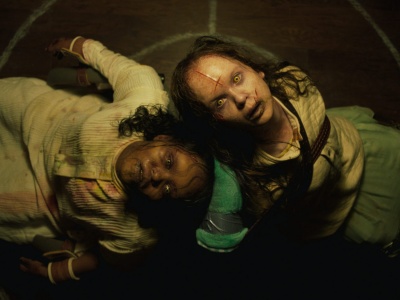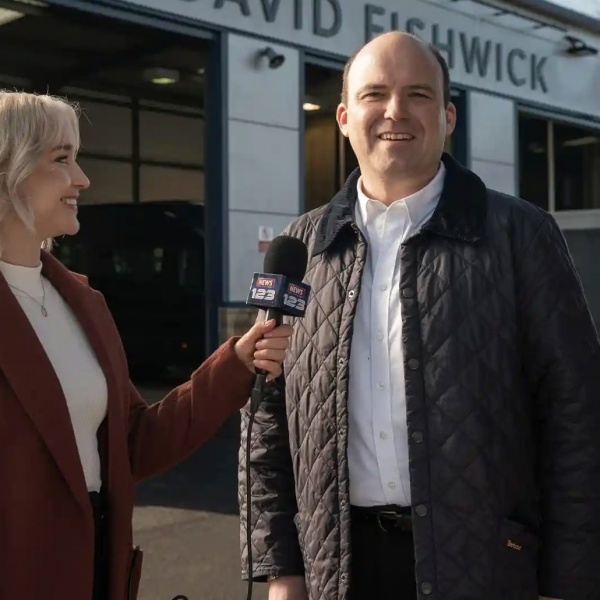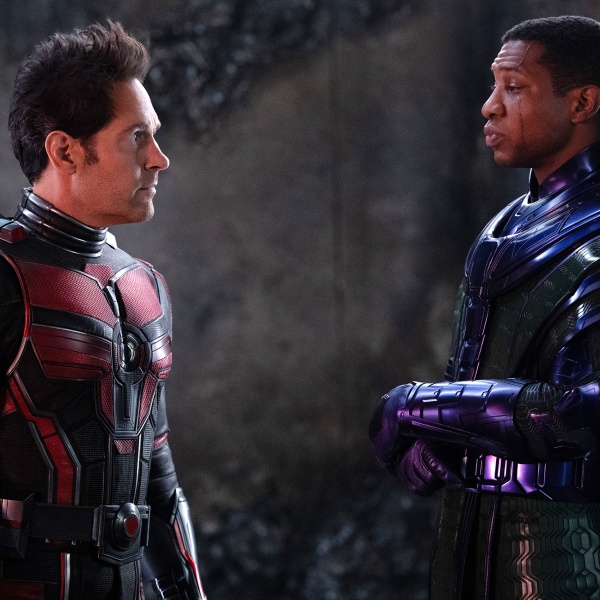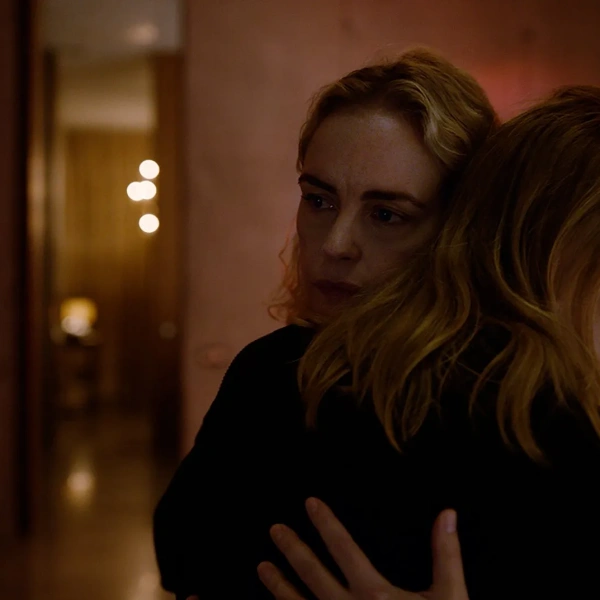Yes, it’s here; the dark conclusion to a series that has proven time and time again to have reinvigorated the dystopian genre in its complexity.
Directed by Francis Lawrence, The Hunger Games: Mockingjay Part 2 is not only entertaining in a conventional sense, but also functions as a multifaceted critique on the shrewd reality of war, diving in exactly where we left off with Jennifer Lawrence’s Katniss Everdeen. The time for brinkmanship is over, as Capitol and rebel forces are in the throes of full-scale conflict. When the lines of right and wrong are blurred in the context of war, Katniss finds herself struggling to reconcile the scale of sacrifice deemed necessary to win. Packed with heartbreaking choices and painful goodbyes, the film has a true sense of finality in its farewell to the citizens of Panem.
As the figurehead of the rebellion, Katniss joins some familiar faces to form a star squad of President Coin’s creation – a team of highly trained soldiers broadcasted across Panem in a livestream ‘propo’ designed to show Capitol loyalists that the Mockingjay is stronger than ever. Facing down danger and snares on a greater scale than ever before, the team navigate their way through a real life Hunger Games where casualties are commonplace and fear is a constant.
 Without a doubt, the film is at its best when the characters face their gut-wrenching worst. The battle scenes are chaotic and darker than you’d expect for an M rating, and the coldness of both Julianne Moore’s President Coin and Donald Sutherland’s President Snow are spectacularly portrayed, painting Katniss as the dangerously frayed rope in a political tug-of-war of extraordinary means. The film even seamlessly weaves elements of science fiction into its dystopian story, with obvious influence from blockbusters like Star Wars and Alien leading to the depiction of a truly horrifying world.
Without a doubt, the film is at its best when the characters face their gut-wrenching worst. The battle scenes are chaotic and darker than you’d expect for an M rating, and the coldness of both Julianne Moore’s President Coin and Donald Sutherland’s President Snow are spectacularly portrayed, painting Katniss as the dangerously frayed rope in a political tug-of-war of extraordinary means. The film even seamlessly weaves elements of science fiction into its dystopian story, with obvious influence from blockbusters like Star Wars and Alien leading to the depiction of a truly horrifying world.
The standout performances go to the supporting cast. While yes, leading lady Lawrence does hold the film steady, her steeliness as Katniss does occasionally present as vague in the face of traumatic events while Liam Hemsworth’s Gale was vastly underutilised and relegated to ‘love interest option two’. Instead, it’s the mute cameraman Pollux (Elden Henson), a once again bewigged Effie Trinket (Elizabeth Banks) and a knowing performance from the late Philip Seymour Hoffman as Plutarch Heavensbee that carry more of the film’s emotional weight. Even Woody Harrelson’s Haymitch manages to transcend his Owen Wilson-style hairdo to deliver a moving monologue in an obviously recast scene, while sneering drug-addicted Johanna (Jena Malone) provides a harder, pessimistic force.
 I won’t deny however, that some of the most poignant moments did come from Katniss’ leading counterpart, the post-brainwashed Peeta Mellark (Josh Hutcherson), who seeks help from Katniss to figure out what’s real and not real as his brain can no longer delineate between the two. The obvious inner conflict and deep self-loathing the Peeta experiences over this confusion is portrayed convincingly, and is testament to Hutcherson’s growing acting gravitas.
I won’t deny however, that some of the most poignant moments did come from Katniss’ leading counterpart, the post-brainwashed Peeta Mellark (Josh Hutcherson), who seeks help from Katniss to figure out what’s real and not real as his brain can no longer delineate between the two. The obvious inner conflict and deep self-loathing the Peeta experiences over this confusion is portrayed convincingly, and is testament to Hutcherson’s growing acting gravitas.
If there’s one major concern I had for the film, it’s that there were times when the reactions were underplayed. Perhaps it was intended as an exploration of Post Traumatic Stress Disorder, or even simply a reflection of a losing so much that you feel only numbness. Nonetheless, at one critical juncture a flat delivery from Lawrence underscores one of the most intense scenes, and in another more crucial point the audience isn’t given time to process what they are seeing before moving on to the next emotional tug. As a huge fan of Jennifer Lawrence, her performance left me questioning how a brilliant Academy Award-winning actress playing an expert huntress could have missed the mark. Gone are the devastatingly beautiful moments of sorrow from the previous films, along with a sense of pace that would have helped the film escalate more smoothly.
The special effects team deserve accolade, with their deft control of CGI resulting in one of the most frightening scenes the franchise has faced. Jaws around the cinema dropped and stayed hanging for its duration, with many viewers jumping in their seats – more than once. The mark of a good suspense scene is that upon exiting the room, viewers talk about it with an involuntary shudder. This was achieved in spades, and it was a relief to me that the scene was done well as it involved one of the more memorable aspects of Suzanne Collins’ book.
Ultimately, The Hunger Games: Mockingjay Part 2 is clever in its exposition and pushes the envelope with its interplay between political strategy and the reality of battle. The four-part saga is at a close, and with an epilogue that echoed Harry Potter and the Deathly Hallows Part Two, we are assured that no matter what, there is always something good to hold on to.
Real or not real? Real.

